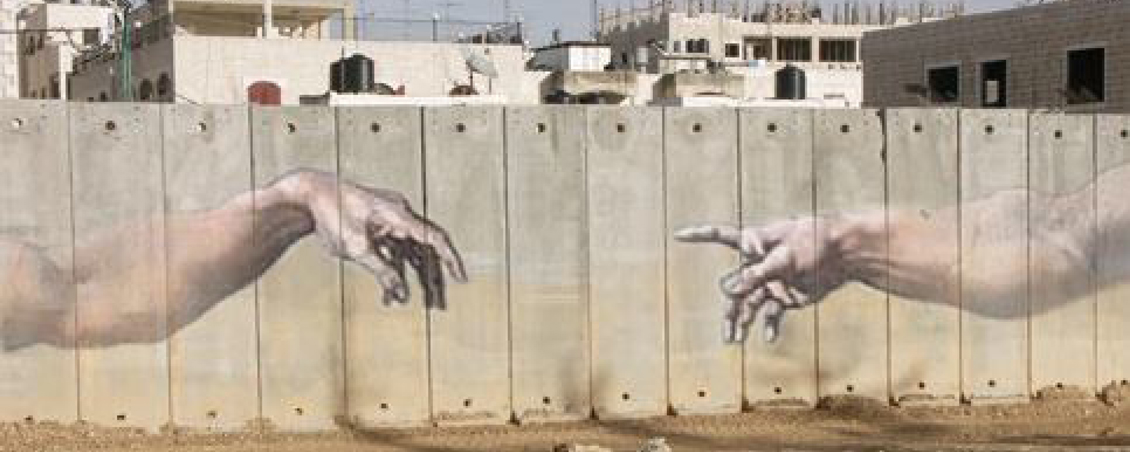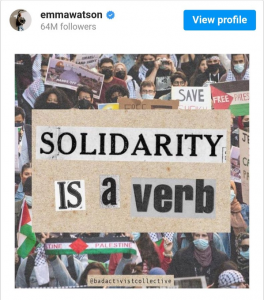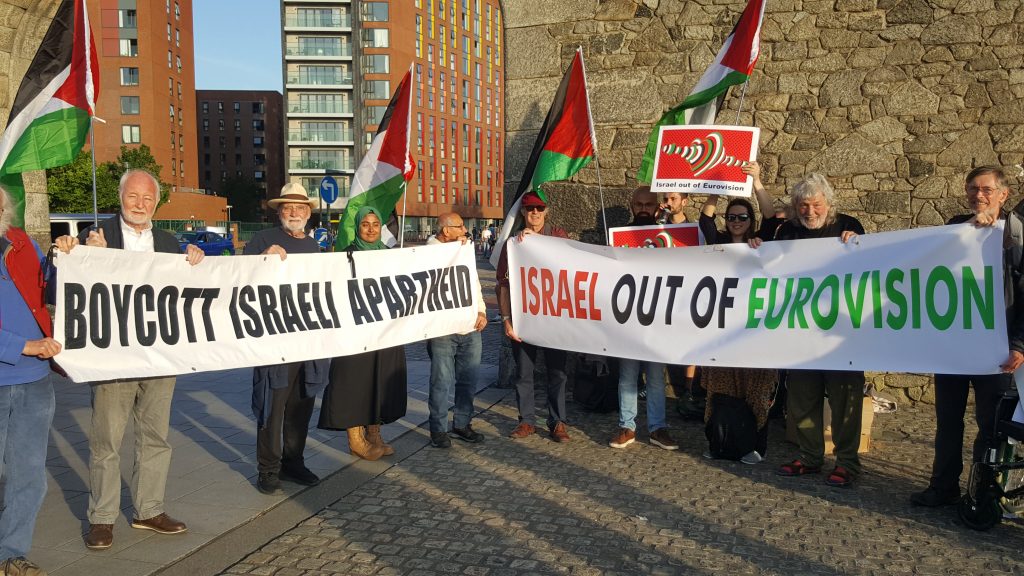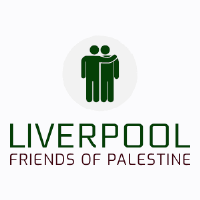
“Today there’s no question: an artist or intellectual who collaborates with activities funded or approved by the Israeli state is complicit in Israel’s ethnic cleansing of the Palestinians.” – Ahdaf Soueif
February 2015 saw the launch of Artists for Palestine UK. Over 600 artists, including well-known actors, authors and performers, signed the organisation’s Pledge for Palestine. The website for Artists for Palestine UK is HERE.
The pledge reads: “We support the Palestinian struggle for freedom, justice and equality. In response to the call from Palestinian artists and cultural workers for a cultural boycott of Israel, we pledge to accept neither professional invitations to Israel, nor funding from any institutions linked to its government until it complies with international law and universal principles of human rights.”
The organisation has produced a booklet The Case for a Cultural Boycott of Israel, which both argues the case for a boycott and gives some practical advice on ‘when should I act and why’.
The Palestinian call for boycott does not target individual artists according to their nationality, their beliefs or the content of their art. It focuses on ties to the Israeli state. The issue is whether an artist or company is state-funded or serves as cultural ambassador for Israel. So, for example, the 2012 UK tour by the Israeli state-funded Batsheva dance company attracted widespread protests.
As for visiting Israel, the advice is to refuse any invitation unless it is to work with those who explicitly oppose the occupation. So, again for example, London’s Globe Theatre were urged not to perform at the Cameri theatre in Tel-Aviv in March 2016 as that theatre is an Israeli national institution and indeed stages performances in the illegal settlement of Ariel. Similarly, artists were urged not to take part in the 2019 Eurovision Song Contest as it is hosted by Israel.

SOLIDARITY IS A VERB – EMMA WATSON
On 2 January 2022 the British actress Emma Watson, star of the Harry Potter films, posted a support for the Palestinians on her instagram account: Solidarity is a verb’. In the caption she added a quote from scholar and activist Sara Ahmed: “Solidarity does not assume that our struggles are the same struggles, or that our pain is the same pain, or that our hope is for the same future. Solidarity involves commitment, and work,”
She was supported by fellow-actress Miriam Margolyes who said: “I totally support Emma Watson’s recent remarks on Palestine. All decent people should too. The Israeli treatment of Palestinians is disgraceful. Antisemitism is not at issue. What matters is opposing cruelty, speaking out for compassion. Criticising Israel is not in itself, an anti-Semitic stance. Conflating the two is a form of disguised censorship.” .
A further forty people from the world of film signed this open letter: “We join Emma Watson in support of the simple statement that ‘solidarity is a verb’, including meaningful solidarity with Palestinians struggling for their human rights under international law. We oppose injustice anywhere in the world and stand with all those seeking an end to oppression. We stand against ongoing Israeli attempts to forcibly displace Palestinian families from their homes in the East Jerusalem neighbourhoods of Sheikh Jarrah, Silwan and elsewhere in the occupied Palestinian territory. We recognize the underlying power imbalance between Israel, the occupying power, and the Palestinians, the people under a system of military occupation and apartheid, as described by Human Rights Watch, B’Tselem, Israel’s leading human rights organization, and by Palestinian and international human rights experts. We condemn all forms of racism, including antisemitism and Islamophobia. Opposition to a political system or policy is distinct from bigotry, hatred and discrimination targeting any group of humans based on their identity. We see the former as a legitimate and necessary form of political and ethical expression and the latter as racism – pure and simple. The late Desmond Tutu once said, “If you are neutral in situations of injustice, you have chosen the side of the oppressor.” Heeding Tutu’s moral appeal, we stand on the side of justice, freedom, and equal rights for all. This is the least we can do.”
A statement from 400 philosophers in November 2023, calling for a boycott of complicit Israeli academic institutions, is HERE.
EUROVISION SONG CONTEST
The Eurovision Song Contest is a frequent focus of campaigns for the isolation of Israeli apartheid. When it was held in Liverpool in 2023 we organised demonstrations at both Israel’s semi-final and the final. There was a similar call for the exclusion of Israel from the 2024 event, including THIS STATEMENT.

“I often feel in despair when I think of the suffering of the Palestinian people living and dying under an apartheid state that disregards international law and universal principles of human rights. I agonise over what I, as one individual, can do to help right such an enormous wrong. This boycott pledge is an action that all of us in the artistic community can take. It will cost artists very little to join this boycott but it could help achieve justice, freedom and a lasting peace.” Alexei Sayle

